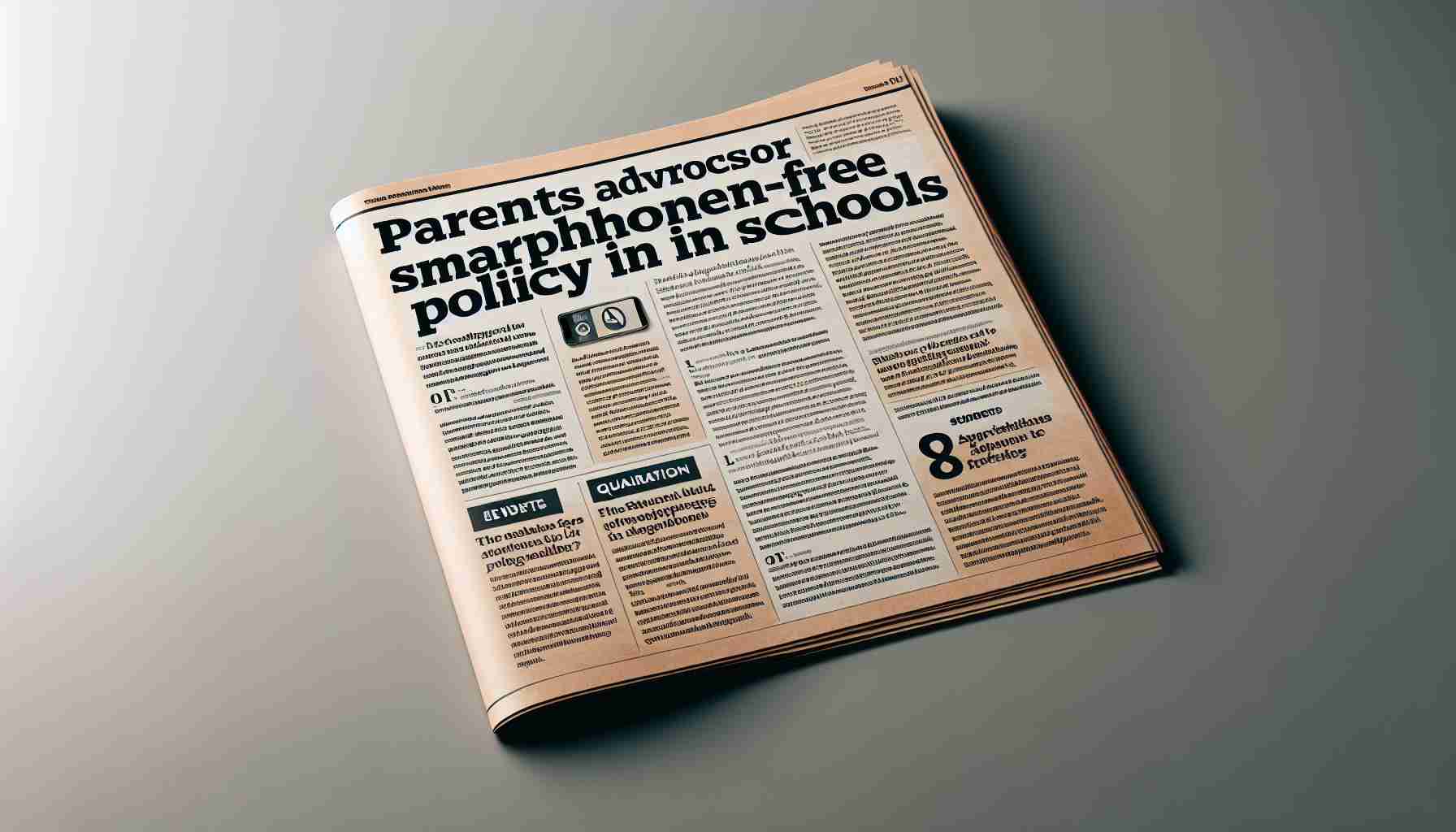Concerned Parents Push for Smartphone-Free Schools
Parents in Brighton and Hove are rallying together to advocate for a smartphone-free policy in schools. Led by a group of passionate individuals, the movement aims to address the increasing concerns over the impact of technology on children and teenagers.
Push for Change in Education
Instead of submitting formal petitions to the council, these parents are spearheading a grassroots campaign to encourage schools to adopt guidelines that limit smartphone use among students. They emphasize the importance of delaying smartphone access for children and promoting the use of basic mobile phones or smartwatches for communication needs.
Empowering Parents Through Education
The initiative also includes an educational campaign designed to inform parents about the potential risks associated with early smartphone usage. Workshops and collaborative efforts with local schools will be key components of this awareness drive.
Community Support and Engagement
Parents are calling on the council to provide resources and assistance to schools in implementing these new guidelines effectively. They also stress the importance of training sessions for teachers and creating a platform for parents to voice their concerns and experiences.
Building a Safer Environment for Youth
The ultimate goal of this movement is to prioritize the healthy development of young people and minimize the risks linked to early smartphone use. By garnering support from the council and the community, these parents believe they can create a safer and more nurturing environment for children and teenagers.
The Road Ahead
With nearly 1,000 signatures gathered within just 24 hours, the movement is gaining momentum. The push for smartphone-free schools in Brighton and Hove signals a growing awareness and determination among parents to safeguard the well-being of the younger generation.
Key Facts:
– In some countries, such as France, smartphone use is already restricted in schools by law to minimize distractions and promote focus on learning.
– Research has shown that excessive smartphone use among children and teenagers can lead to issues such as sleep disturbances, poor academic performance, and mental health concerns.
– Some schools have implemented smartphone-free policies during specific hours of the day to create a balanced approach to technology use.
Important Questions and Answers:
1. Are there studies demonstrating the negative effects of smartphones on student well-being?
– Yes, various studies have linked excessive smartphone use to sleep problems, decreased academic performance, and potential mental health issues among children and teenagers.
2. How do parents plan to monitor and enforce smartphone-free policies in schools?
– Parents may coordinate with teachers and school administrations to establish clear guidelines and monitoring systems to ensure compliance with the policy.
Key Challenges and Controversies:
– Balancing the benefits of technology integration in education with concerns about the negative impacts of smartphones on students.
– Resistance from students and some educators who may argue that smartphones can also be valuable tools for learning and communication.
Advantages of Smartphone-Free Policies:
– Reduced distractions in the classroom, leading to improved focus and academic performance.
– Encouraging face-to-face social interactions among students and fostering a more balanced approach to technology use.
Disadvantages of Smartphone-Free Policies:
– Some parents may rely on smartphones for urgent communication with their children during school hours.
– Potential challenges in enforcing the policy consistently across all students and managing exceptions for legitimate uses of smartphones in educational settings.
Suggested Related Link:
– World Health Organization
The source of the article is from the blog karacasanime.com.ve
